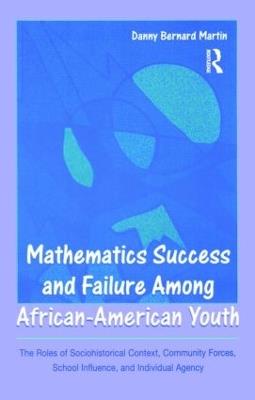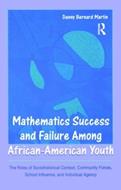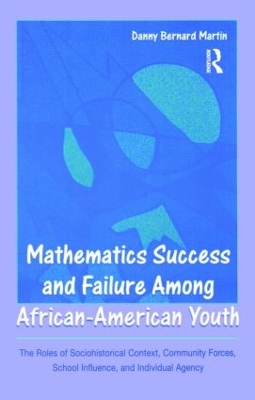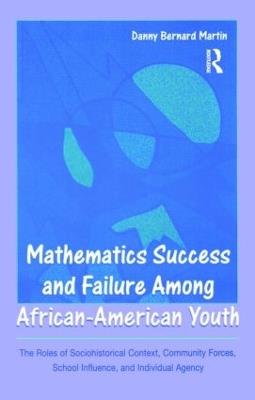Mathematics Success and Failure Among African-American Youth: The Roles of Sociohistorical Context, Community Forces, School Influence, and Individual Agency
No matter how mathematics achievement and persistence are measured, African Americans seem to lag behind their peers. This state of affairs is typically explained in terms of student ability, family background, differential treatment by teachers, and biased curricula. But what can explain disproportionately poor performance and persistence of African-American students who clearly possess the ability to do well, who come from varied family and socioeconomic backgrounds, who are taught by caring and concerned teachers, and who learn mathematics in the context of a reform-oriented mathematics curriculum? And, why do some African-American students succeed in mathematics when underachievement is the norm among their fellow students? Danny Martin addresses these questions in Mathematics Success and Failure Among African-American Youth, the results of a year-long ethnographic and observational study of African-American students and their parents and teachers. Mathematics Success and Failure Among African-American Youth goes beyond the conventional explanations of ability, socioeconomic status, differential treatment, and biased curricula to consider the effects of history, community, and peers--and the individual agency that allows some students to succeed despite these influences. Martin's analysis suggests that prior studies of mathematics achievement and persistence among African Americans have failed to link sociohistorical, community, school, and intrapersonal forces in sufficiently meaningful ways, and that they suffer from theoretical and methodological limitations that hinder the ability of mathematics educators to reverse the negative achievement and persistence trends that continue to afflict African-American students. The analyses and findings offered in Martin's book lead to exciting implications for future research and intervention efforts concerning African-American students--and other students for whom history and context play an important role. This book will be useful and informative to many groups: mathematics education researchers, education researchers interested in the social context of learning and teaching, policymakers, preservice and in-service teachers, students, parents, and community advocates. It will also be of interest to readers concerned with multicultural education, cross-cultural studies of mathematics learning, sociology of education, Black Studies, and issues of underrepresentation in science and mathematics.
-
Autore:
-
Editore:
-
Collana:Studies in Mathematical Thinking and Learning Series
-
Anno:2006
-
Rilegatura:Paperback / softback
-
Pagine:214 p.
Le schede prodotto sono aggiornate in conformità al Regolamento UE 988/2023. Laddove ci fossero taluni dati non disponibili per ragioni indipendenti da Feltrinelli, vi informiamo che stiamo compiendo ogni ragionevole sforzo per inserirli. Vi invitiamo a controllare periodicamente il sito www.lafeltrinelli.it per eventuali novità e aggiornamenti.
Per le vendite di prodotti da terze parti, ciascun venditore si assume la piena e diretta responsabilità per la commercializzazione del prodotto e per la sua conformità al Regolamento UE 988/2023, nonché alle normative nazionali ed europee vigenti.
Per informazioni sulla sicurezza dei prodotti, contattare productsafety@feltrinelli.it



